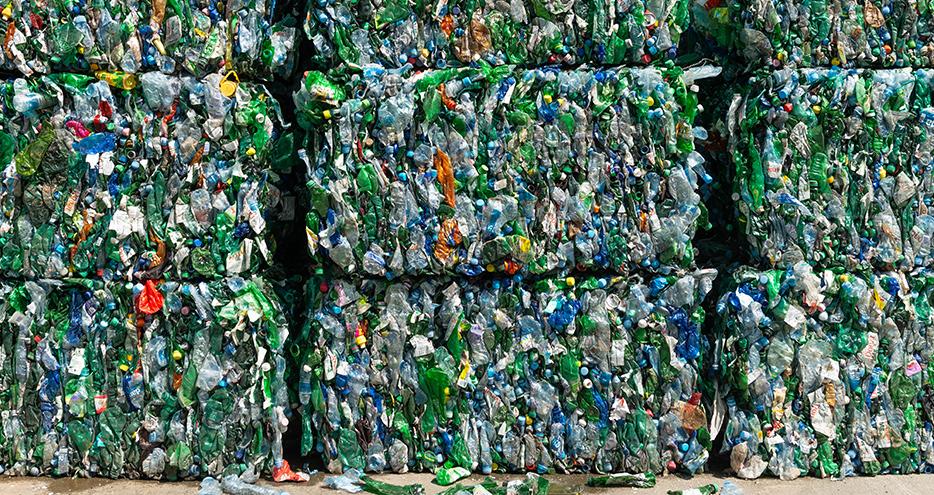UPS Longitudes | We Need More Eco-Friendly Packaging in Healthcare
James McGoff @ TemperPack

WE NEED MORE ECO-FRIENDLY PACKAGING IN HEALTHCARE
Progress is a wonderful thing. Data shows us that people today are collectively more healthy, literate and environmentally conscious than at any point in human history.
Technology has driven much of this progress. The rate of technological change can sometimes feel overwhelming, but we nearly 8 billion humans need the most advanced thinking possible if we’re going to thrive on a crowded planet with limited resources.
Healthcare is one area of incredible progress. Genetic diagnostics, biologic and biosimilar medicines, cell and gene therapy and more give us precise information about and support for better health.
Our own biologic material is at the heart of many of these new approaches, which often involve extracting blood or tissue samples from patients, getting the samples to a lab for genetic or other manipulation and then delivering results back to the patient.
Break in the chain“Tight temperature control for samples and pharmaceuticals is required at every step of the supply chain journey. A break in the chain could render life-saving products ineffective, or worse, harmful.”
Working behind the scenes, packaging engineers and logistics experts play a key supporting role in making this multistep process work.
As described by the National Institutes of Health, tight temperature control for samples and pharmaceuticals is required at every step of the supply chain journey. A break in the chain could render life-saving products ineffective, or worse, harmful.
We are moving past the traditional nature of small-molecule, chemical-based drugs. The medicines of the future are proving to be much more effective — and much more sensitive.
Given the high risk of temperature problems and the very low margin for error, we need additional regulations and standards. The International Safe Transit Association (ISTA) and Utilization Review Accreditation Commission (URAC) provide testing protocols, as well as certifications for packaging designed to keep materials at an exact temperature for a specific amount of time.
We expect drug-specific, temperature-controlled supply chain scrutiny from the FDA and other regulatory bodies will intensify as these treatments become more prevalent.
Sustainability effortsDeepening this complexity is the pressure — both consumer and government alike — for large corporations to adopt a philosophy of environmental stewardship. Unlike, say, automotive manufacturers or many CPG brands, companies in the healthcare space have largely avoided intense scrutiny over environmental protection practices.
This is largely due to the privacy of their operations and a sentiment that patient health takes a higher priority over environmental health. In reality, however, they are interconnected.
Today we see a huge amount of plastic and expanded polystyrene (EPS), commonly known as Styrofoam, in the healthcare supply chain because the packaging material is inexpensive and effective for temperature control and product protection.
However, EPS comes from carcinogenic, oil-based feedstock, generates high levels of carbon dioxide and does not break down effectively in landfills or oceans.
Temperature check“We’ve seen major advancements in protective packaging in recent years. New materials such as cotton and wool insulation offer a bio-based approach to reducing carbon emissions.”
But we’ve seen major advancements in protective packaging in recent years. New materials such as cotton and wool insulation perform on par with EPS — and offer a bio-based approach to reducing carbon emissions.
At TemperPack, we have explored hundreds of possible outer packaging materials in our effort to create the best insulator to meet growing healthcare shipping demands, with an eye for recyclable materials.
That research led to the development of ClimaCell®, a plant-based thermal insulator that protects controlled room temperature (CRT) and refrigerated and frozen pack-outs. Our internal analysis shows ClimaCell produces two-thirds fewer carbon dioxide emissions compared to EPS.
ClimaCell is the first thermal insulation to receive the “Widely Recyclable” designation from How2Recycle. This label tells anyone who receives a shipment protected by ClimaCell that it can be easily disposed of alongside the cardboard box or paper bag it came in.
Important strides needed“UPS Healthcare collaborated with TemperPack to develop four off-the-shelf shipper models for varying small package payload sizes, from vials and specimens to biopharmaceuticals, injectables and IV bags.”
Some healthcare organizations have taken a leading role in shifting to more eco-friendly packaging materials.
UPS Healthcare collaborated with TemperPack to develop four off-the-shelf shipper models for varying small package payload sizes, from vials and specimens to biopharmaceuticals, injectables and IV bags.
These additions to the UPS Temperature True® portfolio give healthcare and life science organizations more sustainable options expected to keep tens of thousands of foam shipping coolers out of landfills during the next several years.
The timing is significant, as consumers, businesses and governments continue to look for ways to reduce carbon emissions and restrict expanded foam waste.
U.S. cities and states are banning single-use plastic for certain activities. Walmart and the Ellen MacArthur Foundation are setting emission reduction goals, and even daily news about wildfires and hurricanes drive demand for solutions that work toward a circular economy.
Consumers today don’t want healthcare companies to compromise on patient health or security when transporting critical medical products. However, they are demanding more advanced shipping containers that don’t pollute the environment for thousands of years when discarded.
It’s time for the healthcare supply chain to make important strides in going green. Our planet depends on it.
Read more on UPS's thought leadership blog, Longitudes.

